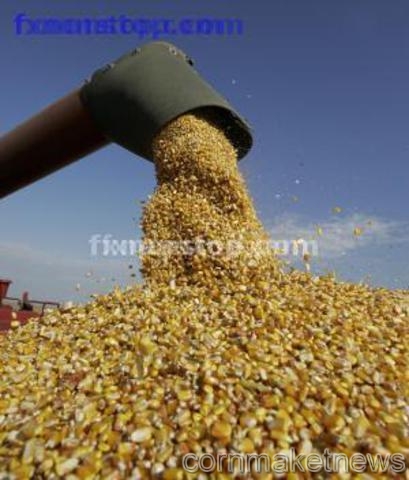 April 15 (Bloomberg) -- Corn fell, heading for the first weekly drop in a month, on speculation that rising supplies in South America may slow overseas demand for crops from the U.S., the world’s biggest exporter. Soybeans rose.
April 15 (Bloomberg) -- Corn fell, heading for the first weekly drop in a month, on speculation that rising supplies in South America may slow overseas demand for crops from the U.S., the world’s biggest exporter. Soybeans rose.
Argentina will harvest 20 million metric tons of corn this year, up from 19.5 million tons estimated last month, the Buenos Aires Cereals Exchange said yesterday. Cheaper supplies of feed- grade wheat from Canada, Australia, Russia and Ukraine may also curb demand for the grain, said Chad Henderson, a market analyst at Prime Agricultural Consultants Inc.
“The markets are adjusting to the prospect for larger supplies,” Henderson said by telephone from Brookfield, Wisconsin. “Wheat is going to work into more livestock-feed rations.”
Corn futures for July delivery fell 6.75 cents, or 0.9 percent, to $7.5425 a bushel at 11:09 a.m. on the Chicago Board of Trade. A close at that level would leave prices down 2.6 percent this week, the first loss since March 11. On April 11, the commodity touched $7.8875, the highest since June 2008.
Grain demand may slow in China if the government continues to raise interest rates to curb rising consumer prices, said Brian Grete, a senior market analyst for Professional Farmers of America newsletter. The country’s inflation accelerated in March at the fastest pace since 2008 as the economy expanded by a more-than-estimated 9.7 percent in the first quarter, government data showed today.
‘More Aggressive’
“China will probably need to be more aggressive raising rates to cool inflation,” Cedar Falls, Iowa-based Grete said. “The threat of higher interest rates in China is negative for the agriculture markets.”
China is the world’s biggest buyer of soybeans and the largest producer of pork.
Soybean futures for May delivery gained 4.25 cents, or 0.3 percent, to $13.4725 a bushel in Chicago. A close at that price would still mark a 4 percent drop this week, the most since mid- March.
Corn is the biggest U.S. crop, valued at $66.7 billion in 2010, followed by soybeans at $38.9 billion, government figures show.


























0 comments